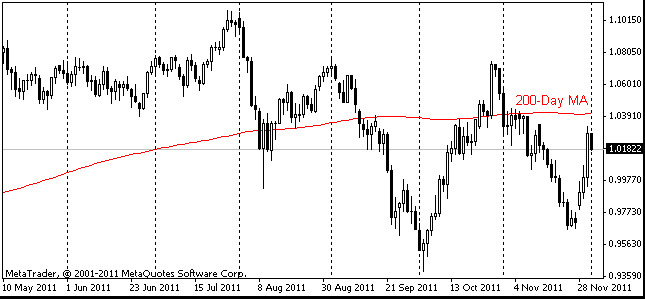EUR/usd
The single currency got a strong impulse for growth after the lull on Monday. Formally, it happened after the publication of the BOJ's decision. Actually, it was just a reason for traders to join the game since earlier they preferred to abstain from trading in anticipation of the major event. Moreover, the purchases of the euro were boosted by the positive news from the region. Dutch Finance Minister Dijsselbloem was elected the new head of the Eurogroup. Besides, it also became known that in March the Eurogroup will consider a bailout of Cyprus. Cyprus is not a big country, but the problems of its banking system have put an additional burden on the suffering Greece and also poisoned the atmosphere in Eurozone. In fact, Germany doesn't hurry to part with its money, giving it to Cyprus, and wants Russia to participate in the bailout of this island country as well. This way or another, the markets now have some grounds to hope that the financial crisis will finally be resolved. Now it only remains to understand what to do with the economic crisis, but it's just a matter of time and if finances are all right, the economies of the USA and China are sure to start growing. From the technical viewpoint the bulls' attempt to push eurusd up from 1.33 looks more reassuring than the previous ones, when the start was off 1.3040 and 1.3250. Anyway, we'd recommend waiting till the level of 1.34 will be finally broken, since in case of the third failure over the last two weeks we'll have to acknowledge the bears' strength and get ready for their powerful counterattack.

GBP/USD
The pound failed to reverse yesterday. The attempts to break through 1.59 turned into selling, which drove gbpusd to 1.58. All in all, from the peak at the beginning of the year the pair has already lost about 5 ½ big figures and dropped below its 200-day MA and the previous low. The pound isn't doing very well, but now it seems to be the only way to support the country's manufacturing sector. Now it's important for Britain that the EU politicians wouldn't put pressure on their domestic currency. The former head of the Eurogroup, Junker, dropped a remark that the euro is unreasonably expensive, but currently this idea isn't cultivated much by the EU politicians. In this regard we should expect some further growth in EURGBP, though the main movement, in our opinion, will be happening in GBPUSD.

USD/JPY
Still the BOJ changed its policy, now targeting the inflation rate of 2%. The major means in this struggle is an asset purchase programme in the Fed's style. Every month the Bank will purchase ¥13trln ($145bln) in the government bonds and bills. Yet, there's one thing that can't but disappoint. The Bank will start the purchases in a year, in January 2014. The news is good, but not enough for traders not to think about taking their profits. On the release usdjpy at some point reached 90.13, but soon dropped below 89 and is now trading at 89.20.

AUD/USD
The aussie welcomed the BOJ's decision. The currency is again attractive for the Japanese investors because of the yield difference. Due to the news that the BOJ will buy the debts of its own government the 5yr bonds now have the lowest yields since 2003 (o.145). By contrast, the AU bonds have the largest yields among the bonds of other developed countries. While the market is focused on this, the Aussie may again try to break through 1.06.
